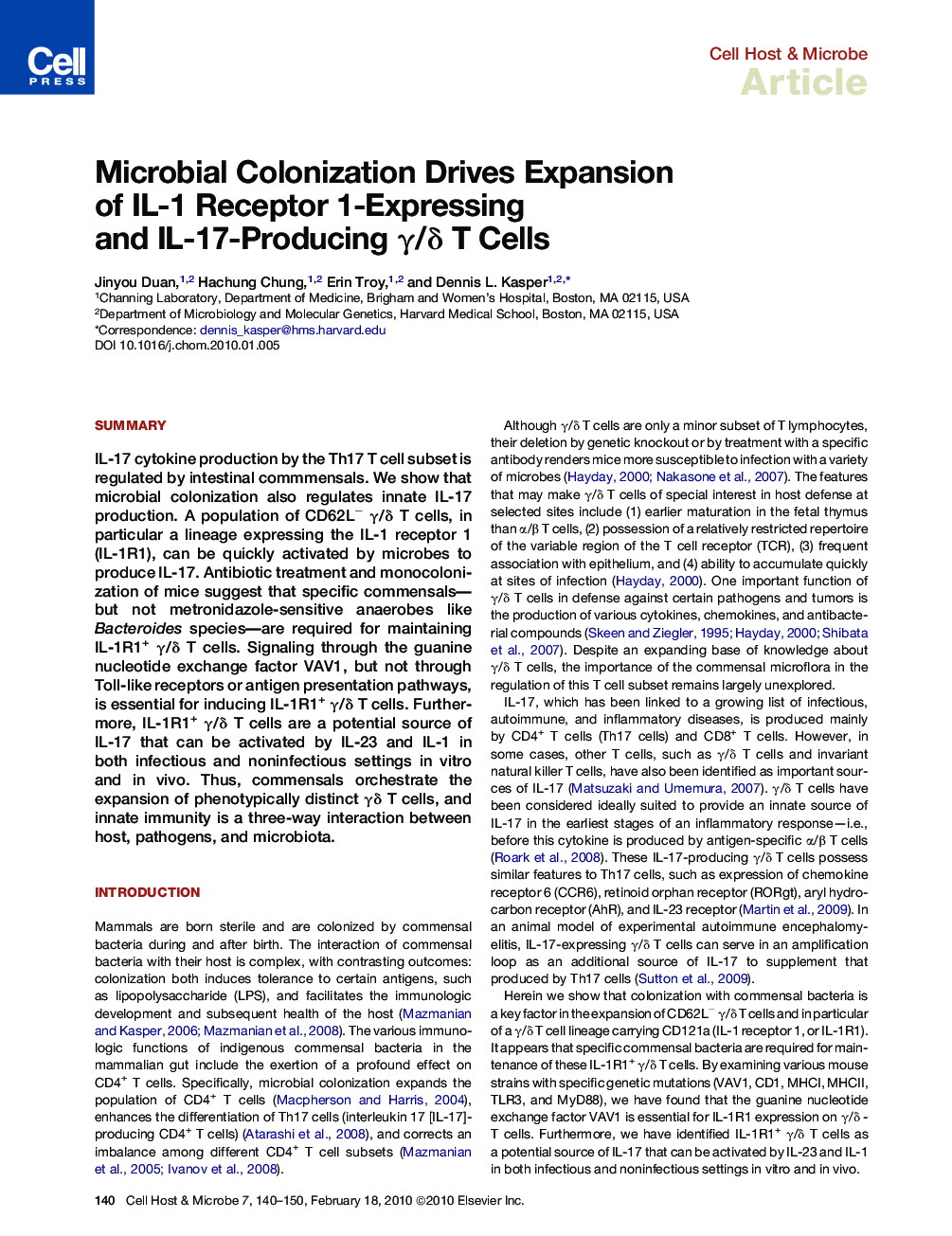| کد مقاله | کد نشریه | سال انتشار | مقاله انگلیسی | نسخه تمام متن |
|---|---|---|---|---|
| 4361297 | 1301367 | 2010 | 11 صفحه PDF | دانلود رایگان |

SummaryIL-17 cytokine production by the Th17 T cell subset is regulated by intestinal commmensals. We show that microbial colonization also regulates innate IL-17 production. A population of CD62L− γ/δ T cells, in particular a lineage expressing the IL-1 receptor 1 (IL-1R1), can be quickly activated by microbes to produce IL-17. Antibiotic treatment and monocolonization of mice suggest that specific commensals—but not metronidazole-sensitive anaerobes like Bacteroides species—are required for maintaining IL-1R1+ γ/δ T cells. Signaling through the guanine nucleotide exchange factor VAV1, but not through Toll-like receptors or antigen presentation pathways, is essential for inducing IL-1R1+ γ/δ T cells. Furthermore, IL-1R1+ γ/δ T cells are a potential source of IL-17 that can be activated by IL-23 and IL-1 in both infectious and noninfectious settings in vitro and in vivo. Thus, commensals orchestrate the expansion of phenotypically distinct γδ T cells, and innate immunity is a three-way interaction between host, pathogens, and microbiota.
► Commensal bacteria are responsible for expanding IL-1R1+ γ/δ T cells
► The guanine nucleotide exchange factor VAV1 is required for IL-1R1+ γ/δ T cell expansion
► IL-1R1 expression correlates with γ/δ T cell production of the cytokine IL-17
► IL-1R1 signaling is essential for optimal innate IL-17 production by γ/δ T cells in response to pathogens
Journal: - Volume 7, Issue 2, 18 February 2010, Pages 140–150